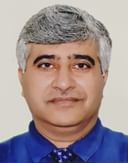Meniere's Disease - What Is The Right Way To Manage It?
Meniere’s disease is a condition of the middle ear, the exact cause of which is not known. If often affects one ear and affects adults who are aged over 40. It is diagnosed by few characteristic symptoms:
- Ringing in the ears or tinnitus, vertigo
- Fullness in the ears
- Hearing loss
There could be periods of dizziness, where the patient falls, known as “drop attacks.” These attacks are followed by long periods with no symptoms whatsoever. It is unpredictable and so a patient can never really be prepared for an attack. While it is not easy to diagnose the condition, doctors do a detailed history to confirm the diagnosis. Hearing test, CT scan, and MRI may be used to confirm the diagnosis.
Management: There is no definitive treatment for this condition. However, various options have been proposed, and many people have found them to be helpful. Some commonly used measures including diet and cognitive therapy are listed below:
- Medications: There is no medication to attack the root cause. Medicines are used often to control dizziness, which is the most irritating symptom of this condition. Meclizine and diazepam are often used. In some people, gentamicin or corticosteroid injections are used. However, long-term use of gentamicin can cause hearing loss.
- Salt restriction: Reducing salt intake indirectly reduces the fluid retention in the body, which helps manage the blood pressure and vertigo
- Dietary changes: When a detailed history is taken, there are patterns which indicate that increased caffeine, chocolate, or alcohol worsen the symptoms. These are reduced with an intent to reduce the symptoms
- Pulse treatment: A pulse of air is pushed through to the inner ear, which helps in symptom relief. This device fits into the outer ear, and when the pulse of air is pushed through, it improves fluid circulation within the middle ear, which is believed to be a cause for the condition.
- Surgery: As a last resort, some surgical options are used:
- A shunt is placed in the middle ear to drain out the excess fluid and maintain balance.
- Labyrinthectomy may also be done to reduce symptoms, which may also involve removal of the eighth cranial nerve, which is believed to be the cause.
- Hearing aids can be used if the hearing loss is severe.
- Alternative medicines including acupressure and acupuncture are proven to reduce symptoms in some people.
- Herbs like gingko biloba and ginger root have also been used, not with proven effect though.
- Prevention: When possible, avoid
- Driving
- Operating heavy machinery
- Swimming
- Use of ladders
- Being on terraces without somebody supervising
In case you have a concern or query you can always consult an expert & get answers to your questions!



+1.svg)
